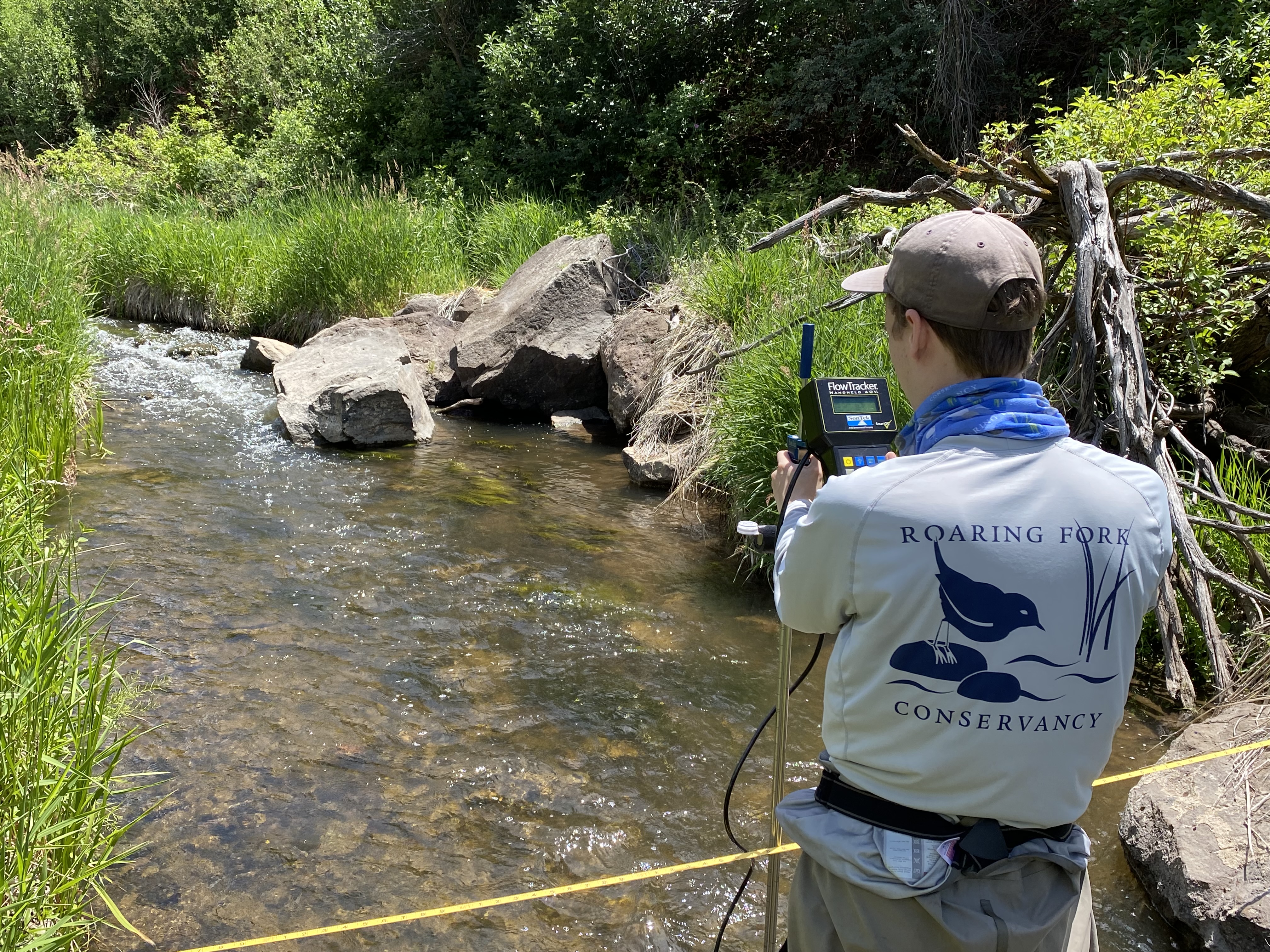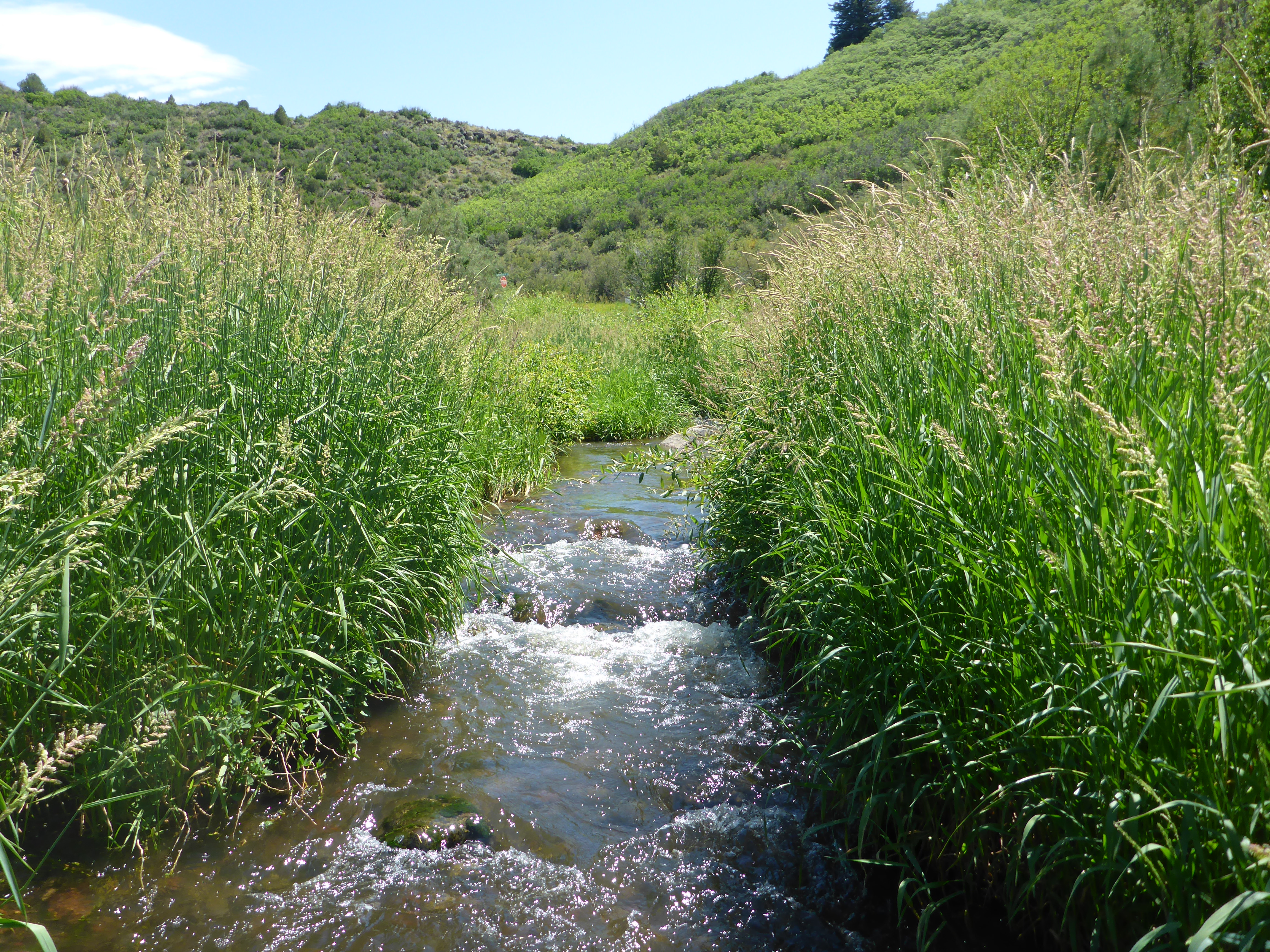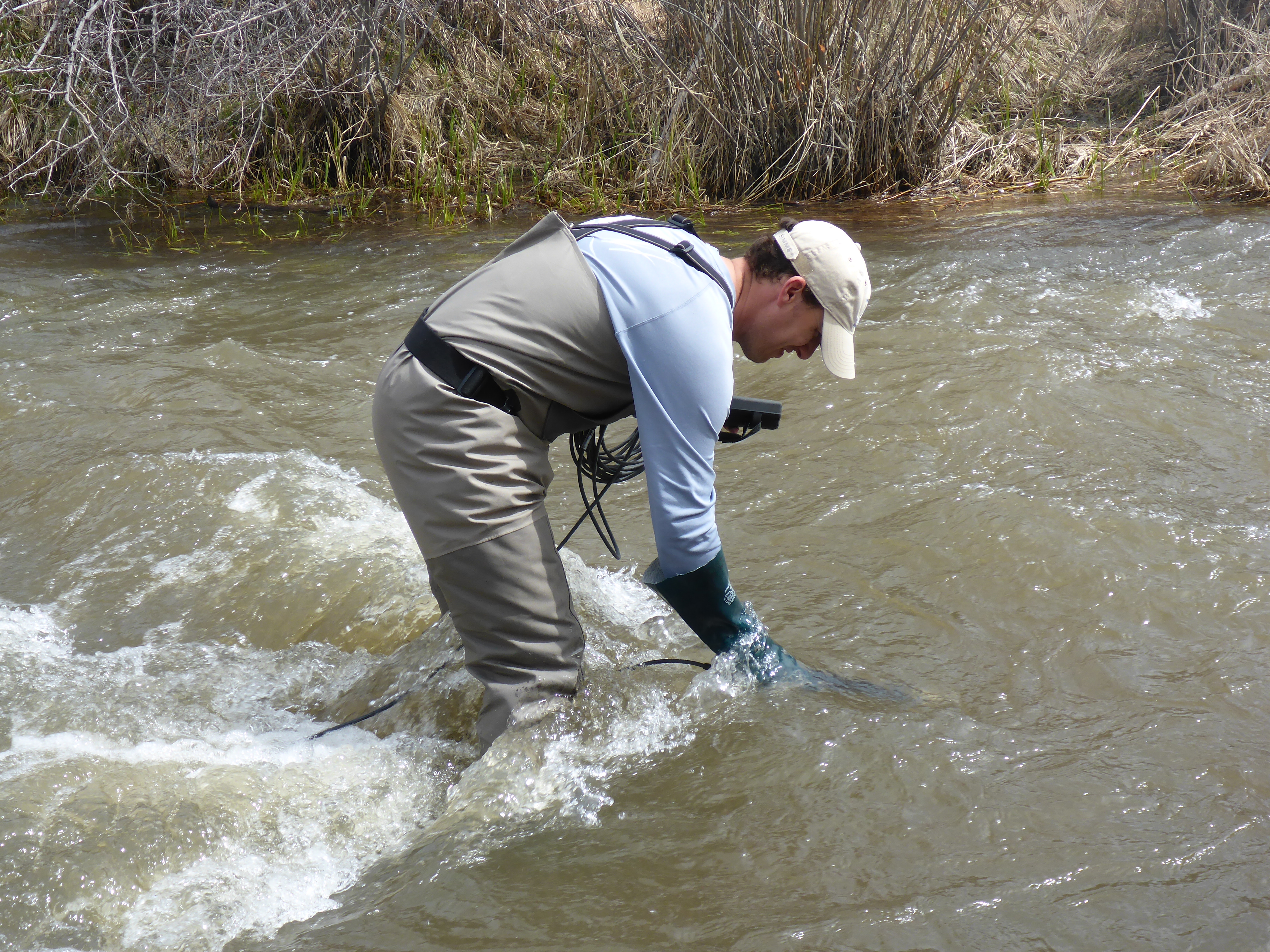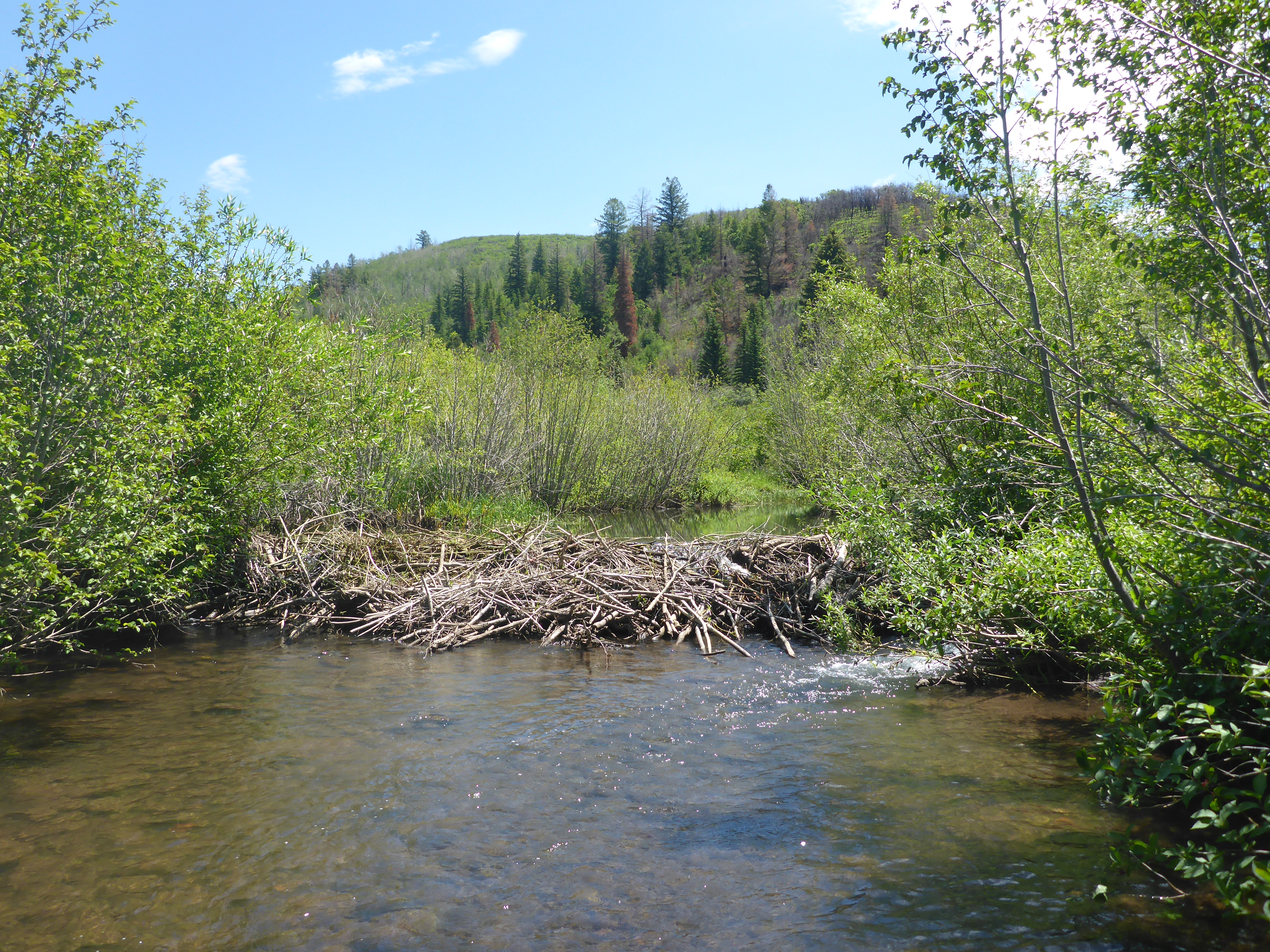In 2015, with funding provided by Garfield and Eagle Counties, RFC embarked on an extensive study to better understand water quality impairment(s) on Cattle Creek. Data from former studies revealed high water quality near the headwaters and impaired water quality on the lower portion of Cattle Creek. With this information, RFC worked with landowners to gain access to private land and established multiple sample sites along Cattle Creek in effort to understand what is happening from upstream to downstream; if there was a gradual impairment, a point where “good” turned to “bad,” or just a small impaired reach.
For ten years, RFC assessed chemical and biological water quality data, based on standards set by the State of Colorado, at multiple sites along Cattle Creek to provide a better understanding of water quality impairments. The following is a brief synopsis of the Cattle Creek study highlights:
- A 14-mile segment of lower Cattle Creek is placed on the State 303(d) list of impaired waters due to impacts to aquatic macroinvertebrates.
- 2015 – RFC Cattle Creek Study begins
- 2016 – Cattle Creek Stream Health Evaluation released, highlighting a gradual degradation of water quality and macroinvertebrate communities moving downstream with the most impacts at the most downstream locations.
- 2016 – Additional macroinvertebrate sampling conducted and submitted to the State Water Quality Control Division for assessment.
- 2017 – RFC staff worked with the Glenwood Ditch Company and NRCS as they updated the diversion structure on lower Cattle Creek in an effort to understand how the new structure would improve ditch efficiency, hydrology, and water quality of the creek.
- 2018 – RFC identified riparian concerns along Cattle Creek on Bureau of Land Management property. RFC worked with the BLM to protect the area from future degradation and to host a 2-day cleanup event on the property in partnership with the BLM, Garfield County, and Rock Mountain Youth Corps.
- 2018 – The Lake Christine Fire burned over 12,000 acres around Basalt Mountain and in the headwaters of Cattle Creek. Over the next few years, RFC’s water quality monitoring showed minimal affects from the burned area to the quality of Cattle Creek.
- 2019 – RFC hosted a public meeting to discuss impacts from the Lake Christine Fire and worked with a Technical Advisory Group to support communication and facilitate long term restoration planning and projects
- 2019 – The Colorado Department of Transportation implemented a scour mitigation project at the Highway 82 Cattle Creek Culvert. Garfield County requested that RFC serve as a technical advisor for the project and provided recommendations for instream habitat improvements which were implemented during the project.
- 2020 – The State Water Quality Control Division removed all of Cattle Creek from the 303(d) list of impaired waters for macroinvertebrates! This was due to additional data collected by RFC and a revision of the state metrics.
- 2020 – During drought conditions, RFC implemented watershed-wide citizen science stream temperature monitoring. Results showed Cattle Creek temperatures high enough to negatively impact aquatic life.
- 2022 – RFC installed a temperature logger on lower Cattle Creek to better document potential temperature impacts to aquatic life.
- 2024 – Final year of data collection and conclusion of study.
- 2025 – Final report of Cattle Creek Stream Health expected in the first quarter.
Throughout the study, RFC conducted stakeholder outreach, including hosting a meeting with public citizens, Cattle Creek residents, business representatives, and elected officials. A shared interest in the long term health of Cattle Creek was a common denominator among attendees and has led to ongoing support of the study.
RFC’s final report will evaluate all water quality, biological, and flow data, and incorporate previous land use analysis to complete a full assessment of Cattle Creek health. The study will also recommend best management practices in effort to inform and provide resources for stakeholders including landowners, water rights holders, county officials, and state regulators.
Hear about the different phases of the Cattle Creek Study on public radio:
- In May of 2015, Aspen Public Radio interviewed Heather Lewin, Director of Science and Policy, about the .
- In the summer of 2015, RFC Water Quality Coordinator, Chad Rudow, spoke with KDNK about sampling Cattle Creek.
- In August of 2016, RFC Water Quality Coordinator, Chad Rudow, was interviewed about the Cattle Creek Stream Health Evaluation in August of 2016.
- Chad Rudow provided a mid-study update on the Cattle Creek Study during his interview with Aspen Public Radio on November 1, 2016.
For more information about this study, please contact Chad Rudow, Water Quality Program Manager, at (970) 927-1290.



